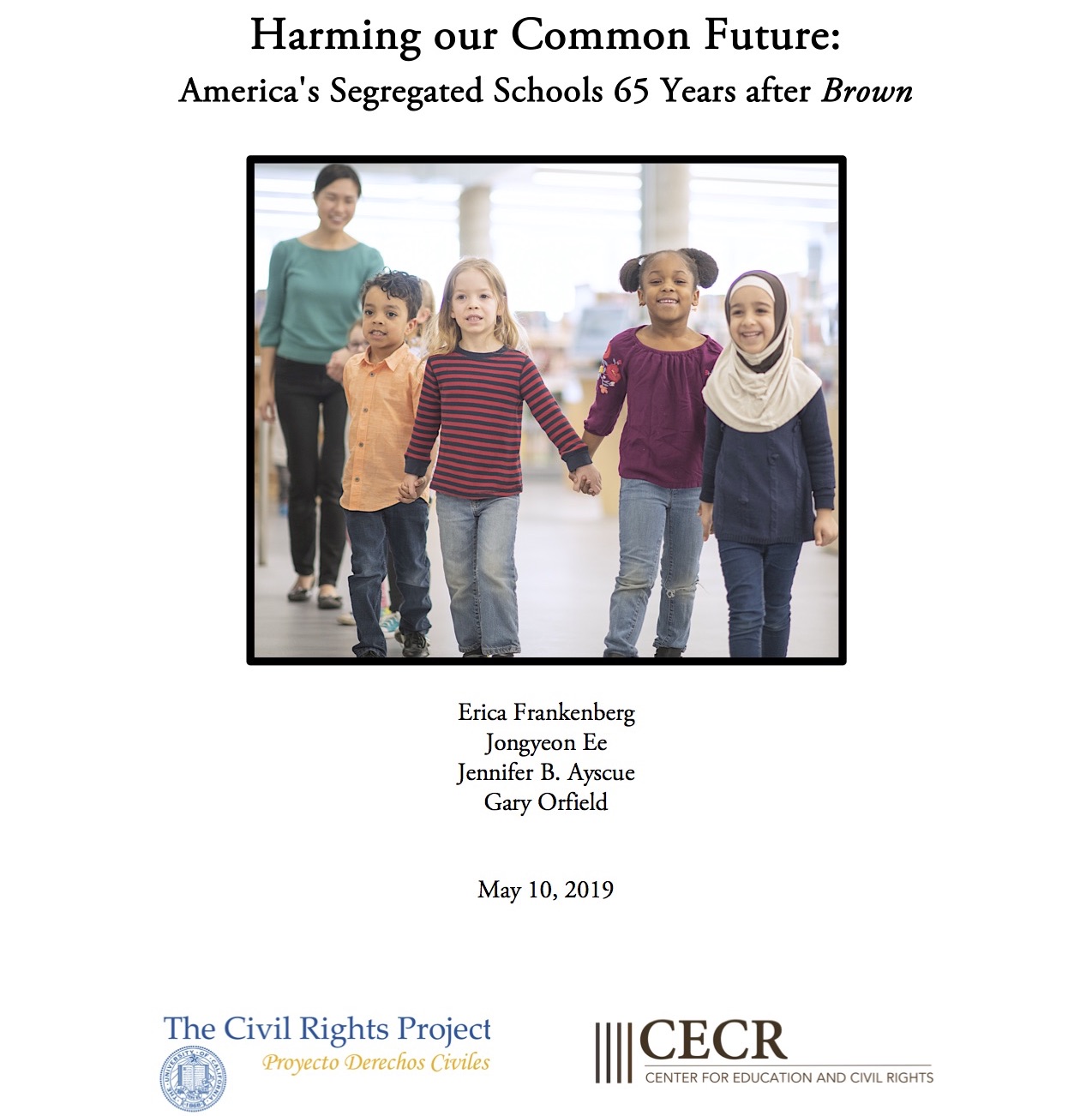 The Civil Rights Project at the University of California, Los Angeles has recently released a report on the status of racial segregation in public schools. The publication marks the 65th anniversary of Brown v Board of Education, the 1954 U.S. Supreme Court case that declared racial segregation in public schools unconstitutional.
The Civil Rights Project at the University of California, Los Angeles has recently released a report on the status of racial segregation in public schools. The publication marks the 65th anniversary of Brown v Board of Education, the 1954 U.S. Supreme Court case that declared racial segregation in public schools unconstitutional.
According to the report, White students are the minority in the country’s public schools, and they have been for many years. Since 1968, White student enrollment has decreased by 11 million students. However, despite this decrease, White students, on average, attend a school in which 69 percent of students are White. Segregation for Black students is rising in all parts of the country. Black students, who account for 15 percent of enrollment, as they did in 1970, attend schools that on average have Black enrollments of 47 percent.
This disparity was notably seen among public schools in both suburban and rural communities. For suburban schools, 47 percent of students were White, while only about a seventh were Black students. Additionally, African American students typically attended schools that were 75 percent non-White, while White students typically attended schools that were two-thirds White. In rural areas, White students typically attended schools where 80 percent of the students were White, while Black students typically attended schools that were 57 percent are non-White. New York is the most segregated state for African American students with 65 percent attending intensely segregated minority schools.
The authors suggest that more research needs to be done to develop effective strategies for school integration. While there are dozens of local school districts across the country that have implemented desegregation efforts, the authors stress that federal agencies need to create programs and fund research that can combat this racial disparity. According to the authors, there is currently no federal government program devoted to fostering voluntary integration of public schools, aside from the small Magnet School Assistance Program.
The full study, “Harming Our Common Future: America’s Segregated Schools 65 Years after Brown,” may be accessed here.


We have limited political clout. It does not make sense to squander the clout we have stubbornly pursuing the elusive goal of full racial integration, not least because the pedagogy that optimizes the performance of white kids may not be optimal for black kids.
Better to focus on improving teacher training and searching for teaching methods that will improve the performance of black students. We should be measuring current performance against past performance and discarding methods and programs that can’t deliver improvements.
Outstanding reminder of a very significant historic event
I am an advocate of integrated schools. If the kids are embraced and except the challenge. They should be in that setting. Furthermore, I thoroughly favor integrated schools with kids who intent to learn and develop. It defeats the purpose to send kids to high performance schools who only purpose is to disrupt learning. That was not the goal of integration. Moreover, there are just too many African American kids in the urban and integrated areas that do not appreciate education. Overall 20% of African Americans desire education who can compete in this environment. The other 80% of African Americans should be directed to technical schools not integrated schools.